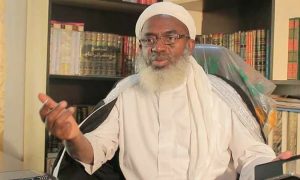Technology
Media expert urges AI developers to build apps to detect fake news

A lecturer at Baze University, Abuja, Dr Tope Ojeme, has called on artificial intelligence, AI, developers to design digital tools that can detect fake news and help curb unethical media practices in Nigeria.
Ojeme made the call while presenting a paper at the closing ceremony of the Second Quarter Courses of the West Africa Broadcast Media Academy, WABMA, in Abuja. His comments were contained in a statement issued on Wednesday in Port Harcourt by WABMA Registrar, Joseph Obari.
Speaking on the theme, “Beyond Debunking: Building a Culture of Media Integrity in Africa’s Next Century,” Dr Ojeme stressed the urgent need to confront the rise of misinformation and disinformation across the continent.
He said AI-driven tools could empower citizens to identify false information and demand accountability from public officeholders.
“We must empower African developers, engineers, and creators to build AI-powered fact-checking plugins for newsrooms, and blockchain-based archives to safeguard journalistic content from tampering,” Ojeme said.
“These tools will also help secure open-data platforms, enabling citizens to demand accountability from their leaders,” he added.
Ojeme warned that without immediate action, Africa could be overrun by misinformation that undermines public trust and scientific facts. He cited the risks of fake medical cures going viral, conspiracy theories gaining ground in classrooms, and election outcomes being influenced by bots.
While acknowledging that technology has enabled the spread of fake news, Ojeme said it also holds the power to reinforce truth through well-structured algorithms that prioritise verified information and expose distortions.
He also cautioned against the dangers of deepfake technology and the manipulation of video content, especially in societies already facing developmental challenges.
“This looming threat highlights the urgency of building systems of truth – ecosystems of integrity, legal frameworks to protect truth-telling journalists, and the establishment of ‘truth desks’ in media organisations,” he said.
Ojeme concluded by stressing the need to confront misinformation decisively, warning that in today’s media environment, “the loudest microphone commands attention, speed supersedes sense, and volume overwhelms value.”
























